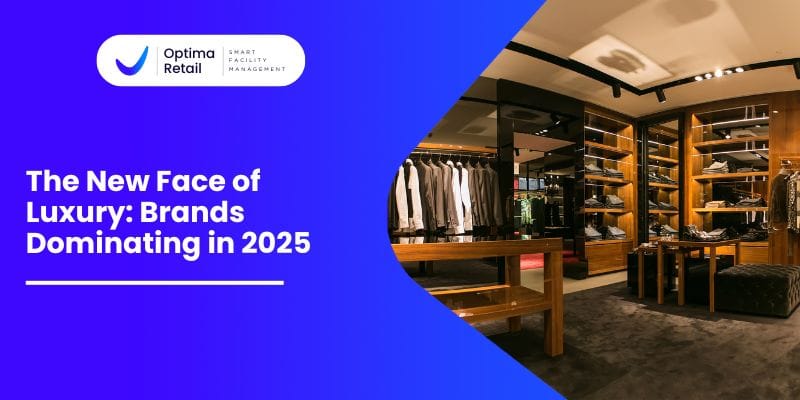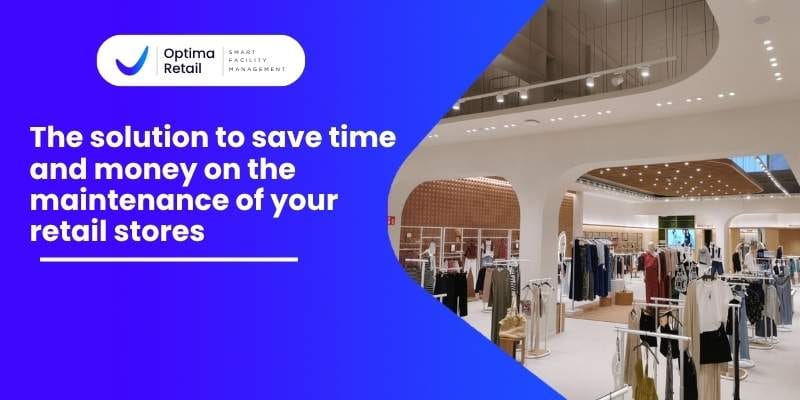The retail industry has constantly undergone transformations to meet the changing needs of consumers. One of the biggest challenges faced by physical store owners is energy management and space optimization, especially when it comes to storefronts.
In this competitive world of retail, every detail matters. Storefronts, the windows that provide access to the soul of the establishment, are not just glass displays but the customers’ first visual contact with the brand. But what happens when the sun shines directly, affecting visibility and internal thermal stability?
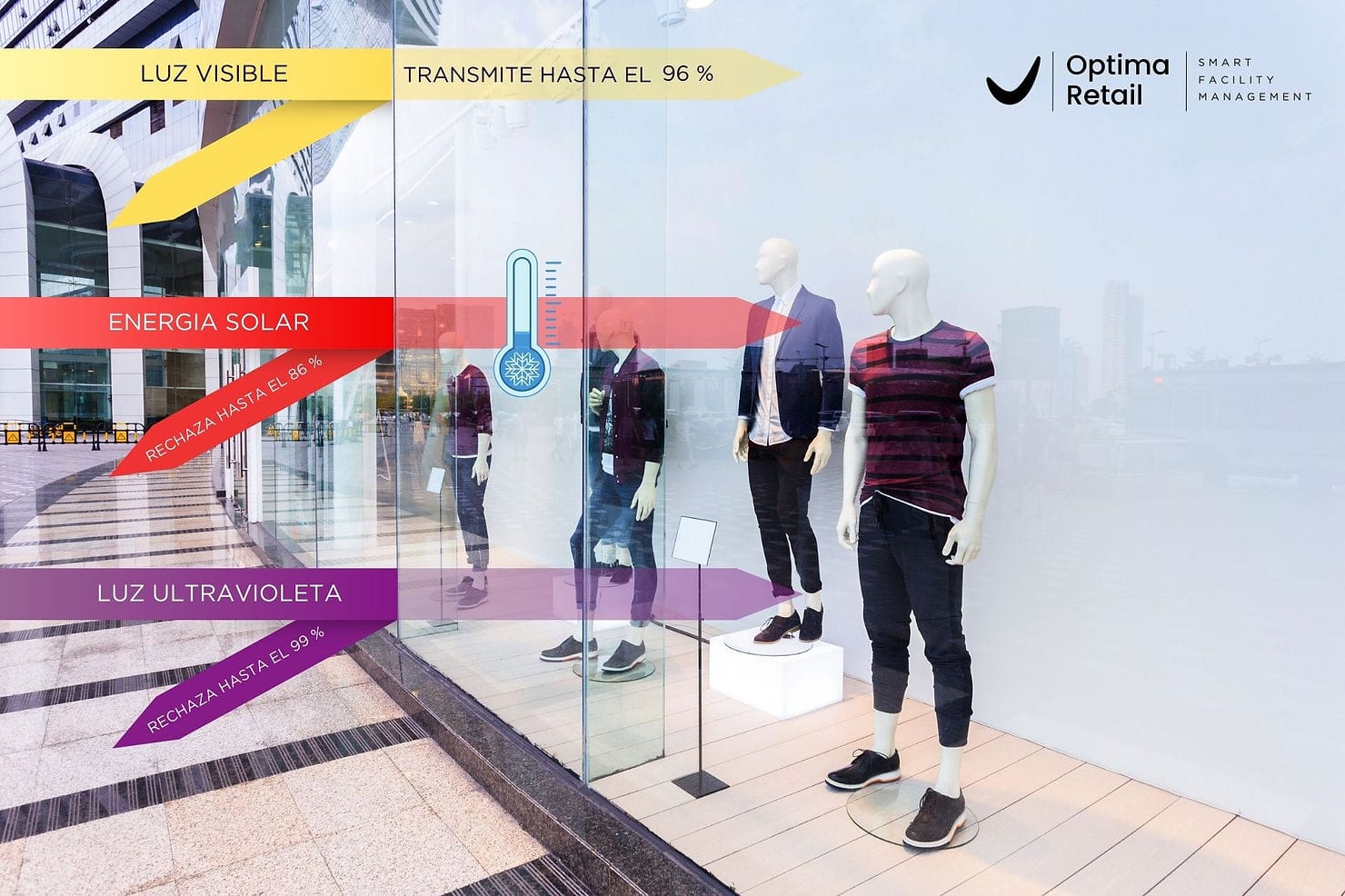
This is where innovations in solar control films make a difference. These advanced solutions, perfectly tailored for retail, not only protect against UV damage but also optimize the visual and energy experience.
For store owners and maintenance personnel, implementing these films means raising the standard of care, customer comfort, and store presentation while reducing energy and sun-affected material costs.
In the B2B realm, where excellence is the norm, having the support of the latest trends in preventive and corrective maintenance is essential. Discover how these films are revolutionizing the world of retail. The future of retail shines but without glare.
Advanced Solutions: The Evolution of Solar Control Films in Retail
Retail has always relied heavily on the presentation of its products. Storefronts, when exposed to direct sunlight, can cause products to deteriorate or fade. Traditionally, curtains or blinds have been used to mitigate these effects. However, these solutions often darken the interior and reduce product visibility.
Solar control films, on the other hand, offer the ability to block harmful UV rays and reduce heat without compromising visibility. Furthermore, modern films have the capacity to adapt to lighting conditions, darkening or brightening as needed.
Benefits of Solar Control Films for Retail
The retail sector faces constant challenges regarding energy efficiency, customer comfort, and aesthetic presentation of their establishments.
A solution that has gained popularity and become essential for many retailers is the installation of solar control films. Below, you can read about some of the benefits these films offer:
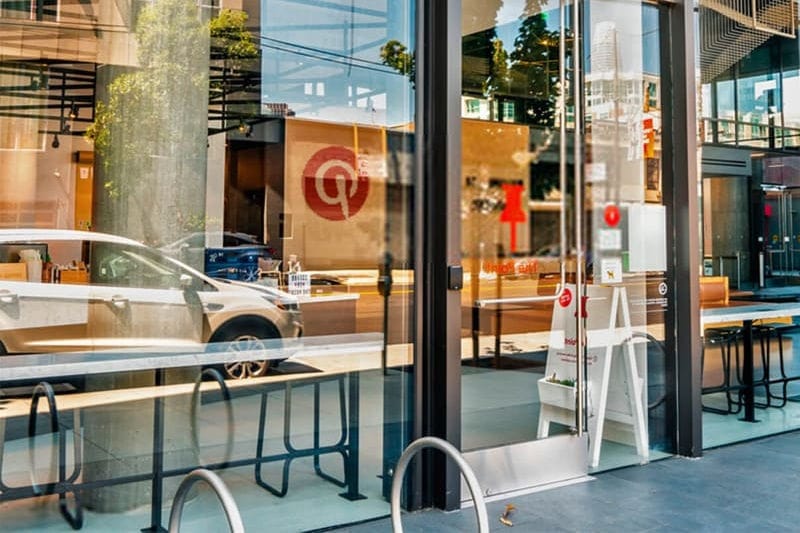
Cost Reduction
Solar control films help reduce heat entry by up to 86%, decreasing the need for air conditioning and, consequently, energy costs.
Customer Comfort
These films maintain a cooler and more pleasant environment inside the establishment, enhancing the customer experience and increasing the time spent in the store.
UV Protection
In addition to temperature control, these films block up to 99% of UV rays, protecting products on display from fading.
Improved Privacy and Security
The films can provide a level of tinting that prevents visibility from the outside during non-operational hours, enhancing privacy and deterring potential criminal activities
Enhanced Aesthetics
These films are available in various designs and finishes, allowing merchants to choose the one that best suits their brand’s image.
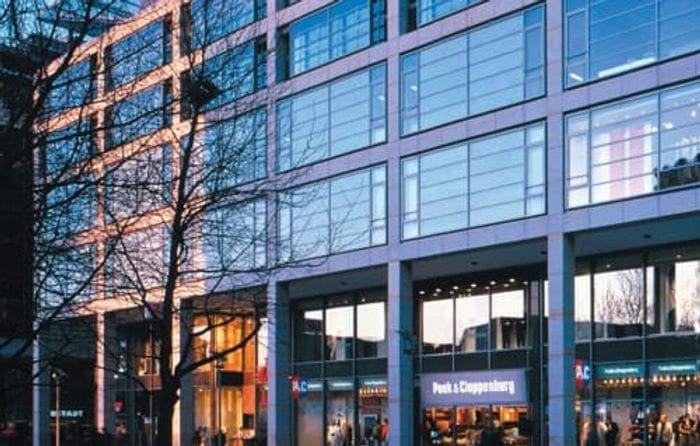
According to a study published by MarketsandMarkets™, the global solar control films market is expected to grow from $2.8 billion in 2020 to over $4.2 billion by 2025. This increase highlights the growing demand and adaptation of this technology in various industries, including retail.
Solar Control Films: How Do They Work?
Solar control films, also known as solar films or tints, are thin coatings applied to glass surfaces, mainly windows, to reduce the transmission of heat and ultraviolet sunlight. These films have become increasingly popular in both commercial and residential buildings due to their energy-saving and protective benefits. Here’s how they work and the advantages they offer:
Reflection and Absorption:
Solar films are designed to reflect and/or absorb a significant portion of solar energy before it penetrates through the glass. Microscopic metal or ceramic particles embedded in the film are responsible for this property, helping to keep interiors cooler in hot climates, and reducing the need for air conditioning and energy consumption.
UV Radiation Filtration
These films can block up to 99% of UV rays, which are harmful to both the skin and the interior materials of a building. UV radiation can cause fading in furniture, curtains, and carpets. By filtering it, the lifespan and appearance of these objects are prolonged.
Glare Reduction
By reducing the amount of visible light that enters through the glass, solar films can decrease glare, which is especially useful in offices with many computers or in homes where sunlight can interfere with the visibility of televisions and other devices
The Future of Solar Films in the Retail Sector
Retail is in constant evolution, and the adoption of new technologies like solar films integrated with IoT is a testament to this. As more stores seek sustainable, energy-efficient, and aesthetically appealing solutions, the demand for these films will only increase.
Furthermore, with the development of new technologies, we are likely to see films with even more advanced features in the future, such as the ability to generate solar power or the incorporation of digital screens for advertising.
